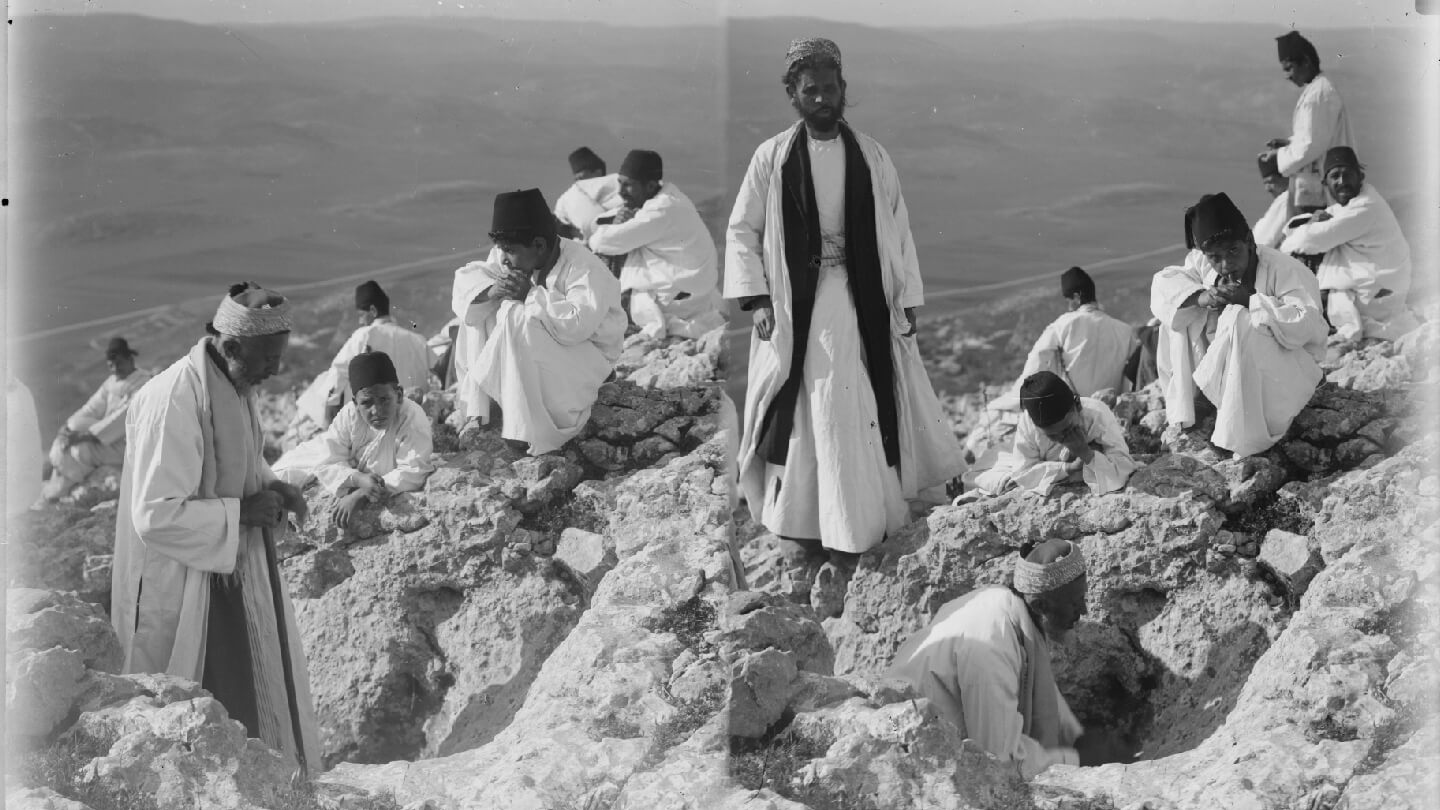Why We Remember the Passover
Passover is one of the most important holidays in the Torah. The Exodus from Egypt formed Israel as a nation, and build its collective awareness more than any other event in the scriptures.
We might even say the entire Bible is influenced by what happened during the Exodus. It is mentioned in the Torah, the prophets, the writings, and the New Testament, more than any other historical event.
 The Samaritan Passover on Mt. Gerizim.
The Samaritan Passover on Mt. Gerizim.
As a believer, I can easily understand why the Exodus, or more accurately, the redemption from Egypt, is the prototype of the redemption of the world, which is to come through Yeshua the Messiah 1300 years later.
The Exodus happened 3300 years ago, and the question we should ask ourselves, is: How did we manage to keep this memory alive? And, for whose sake?
The answer is, that God created a theater, a full performance, accompanied by ten plagues, by blood and sacrifices, by Israel’s escape from the Egyptian army, by miracles and wonders (including the parting of the Red Sea), by providing the mana, and by the pillar of cloud and pillar of fire.
And all these happened for the sake of our children, for the sake of the future generations. God stated clearly, that He did all these in order to tell the story, for the sake of the future generations, as it is written:
“…that you may tell your children and grandchildren how I dealt harshly with the Egyptians and how I performed my signs among them, and that you may know that I am the Lord.” – Exodus 10:2
According to this text we have to teach our children. We have to tell them that we are here today because of a miracle.
There is a God in heaven. He is faithful, He fulfills His promises, He took us out of Egypt and redeemed us with a mighty hand and an outstretched arm. With that very same hand and by the same arm, He gathered us from the four corners of the earth, and against all odds, brought us back to the Land of Israel.
He is the One who sustains us even to this day. That very God sent His Son, Yeshua, in order to save and redeem us, and to lead us to His promised land.
In the same way, as the children of Israel who came to their inheritance and to the land of the promise, we are certain that Yeshua will lead us to the Kingdom of Heaven and to the fullness of God’s promises.
The commandment to tell our children and to teach the next generation is an essential part of the concept of Exodus, and therefore also of the Passover commemoration. It appears in the Bible in different verses like:
“In days to come, when your son asks you, ‘What does this mean?’ say to him, ‘With a mighty hand the Lord brought us out of Egypt, out of the land of slavery.’” – Exodus 13:14
We see in passages like these great emphasis on the education of children. In the New Testament, Yeshua commands us:
“Let the little children come to me, and do not hinder them, for the kingdom of God belongs to such as these.” – Luke 18:16
This verse points out that our attitude towards our families and our children is a commandment. It is no longer a question of morality, or what is preferable for a parent. It is not a question of what is better.
Parents have obligations, and one of them is to teach your children the Word of God. To teach them about the Exodus from Egypt. To teach them the Torah, the prophets, and the New Testament.
The Word of God tells us to teach our children. But, what if I do not know how?
It is for this reason we have traditions like the Haggadah, which literally means “telling the story”. The Haggadah guides us through the Passover Seder, to make sure we remember the essential parts to share with our kids and our families.
It is for this reason that we celebrate the biblical feasts as an experience. When celebrating the Passover, we sit with our children and let them taste and feel the feast.
Another example is Sukkot, the Feast of Tabernacles. God commanded us to sit in tabernacles for seven days, so that our children will “feel” it.
During the Passover, our children taste the maror (bitter herbs), the bitterness of our life in Egypt. They eat matzah (unleavened bread) for a week, so they will understand that the children of Israel had to leave Egypt in haste, and the dough had no time to rise.
From history we learn the answer to the important question: Why did God command to celebrate the Passover, the Feast of Tabernacles, or the Shabbat?
God commanded us to keep the holidays in a certain way, because it is the best way to preserve our collective memory through the generations.
The book of Exodus begins with forgetting. The new Pharaoh did not know Joseph, he did not remember who Joseph was. But we, the descendants of Jacob, until today – we still remember.
We remember because God commanded us to remember and to teach our children. So that they will remember as well.
If we want our society to be a moral one, we have to create a common ground, a common story – and be a part of this story. We need to understand who we are, where we came from, and what our purpose is in this world.
Our story begins with God's outstretched arm, with hope and freedom. We tell our children about our responsibilities, our hope, and our redemption.

